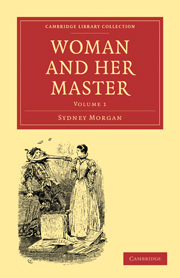Book contents
Summary
The influence obtained over society by these accomplished but dangerous agents of its pleasures and its passions, at last induced the most brilliant and able demagogue of any age or nation to adopt their demoralizing power as a state engine; and Pericles chose the salon of Aspasia as the scene of those corrupting experiments, which preceded the downfal of liberty in Athens, and ended in the entire ruin of Greece.
The character of Pericles was one of those lucky adaptations to cotemporary times and circumstances, which insure success,—not by the highest qualities that ought to command it, but by that peculiar fitness (for evil or for good) which almost always wins it. Of illustrious birth, great wealth, brilliant talents, and refined education, the gifted pupil of Xeno, and ardent disciple of Anaxagoras, was born for the epoch he illustrated. His quick, if not profound, perceptions gleaned a rapid view of the laws of nature from one preceptor, and a contempt of superstition from the other; and he obtained the reputation of a philosopher, from his intimacy with both, though it subjected him to the imputation of being a free thinker. The circumstances of the times gave him an early opportunity of signalizing his intrepid and petulant courage; and, at a moment most favourable to the triumph of sophistry, they also afforded the occasion for exerting that natural eloquence, which adapted its variable character to the passions of each successive audience, to which he addressed it.
- Type
- Chapter
- Information
- Woman and her Master , pp. 291 - 320Publisher: Cambridge University PressPrint publication year: 2010First published in: 1840

